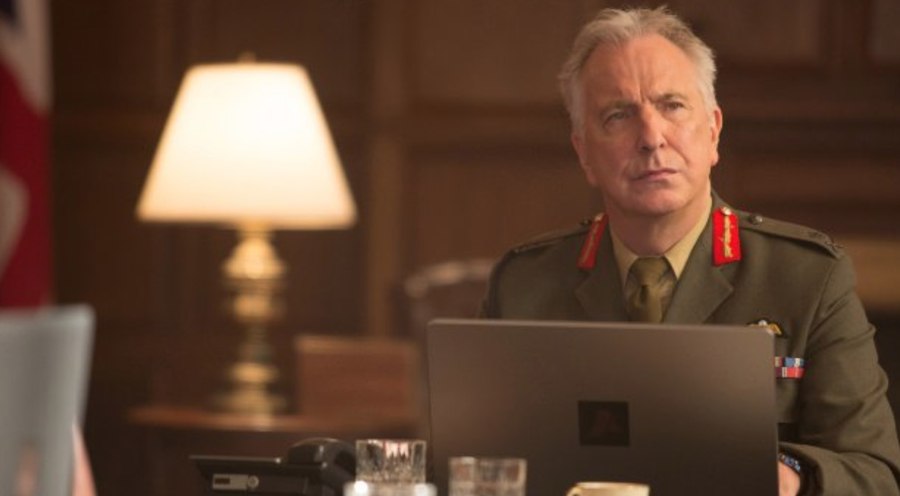“In war, the first casualty is truth” - Aeschylus
In war, much like in politics, there is always more to a situation than what originally meets the eye. While decisions often appear black and white, combat often presents a grey area, prompting many to misunderstand another’s intentions through any particular course of action. Gavin Hood’s Eye in the Sky attempts to showcase the many implications that can arise out of modern warfare, most notably on a global scale.
In the film Helen Mirren stars as Col. Katherine Powell, a military officer in command of an operation set to capture a pair of highly sought after terrorists in Kenya. As the film steadily introduces us to the four teams that will have a hand in the affair, you begin to grasp the tone of the central storyline as the film provides a quick foreshadowing into the chaos that will undoubtedly ensue as moral judgement takes center stage, all thanks to an eleven year old girl and some bread.
Aaron Paul’s Steve Watts, a drone pilot based in Las Vegas, and Barkhad Abdi’s Jama Farah, positioned on the ground just inside the potential blast radius, highlight their respective teams, offering up a solid perspective to the events as they unfold. Their reactions, sincere (though often times a bit dramatic) help to drive the film forward as they keep the story grounded and offer up tremendous supporting work for Mirren’s Powell.
But the film, for all intents and purposes, belongs to Alan Rickman. Set to be his final big screen performance, Rickman shines bright as Lt. General Frank Benson. His poise and delivery demand your attention, even as important conversations occur around him. He carries an authentic presence, deadened by years witnessing the realities of war. His interactions with Monica Dolan’s Angela Northman is truly remarkable, especially towards the final minutes of the film.
But before we reach that point, and the mission escalates from a “capture” to a “kill”, Hood effortlessly creates tension through his stylistic delivery and a solid soundtrack. The music itself offers a strong backbone to the story, keeping your interest as you switch between several different rooms of people, all anxiously working to get the approval of the other. And it is through this corse of action that you realize the complexity that comes with any political decision as no one wants to be the decision maker in fear of the political backlash that could rise as a result of an air strike from 20,000 feet above.
As the film progresses and we begin to understand Hood’s fluid approach to showcasing each team throughout the operation, you can’t help but be drawn into the situation. Sure things get a bit overdone, and the moralistic qualities push the story into a highly unlikely sphere; however, the film itself is able to create pressure and uncertainty while posing a difficult, often forgotten question.
Eye in the Sky isn’t going to revolutionize a genre. Its straightforward approach is to be respected, and Hood’s ability to deliver a war film with a message deserves some recognition. But what sets it apart is the fact that this isn’t a great war film. Sure, modern drone warfare sits at the center of it all; however, at the core, this one is simply a great film. And that, above all else, is the best compliment I can offer.

